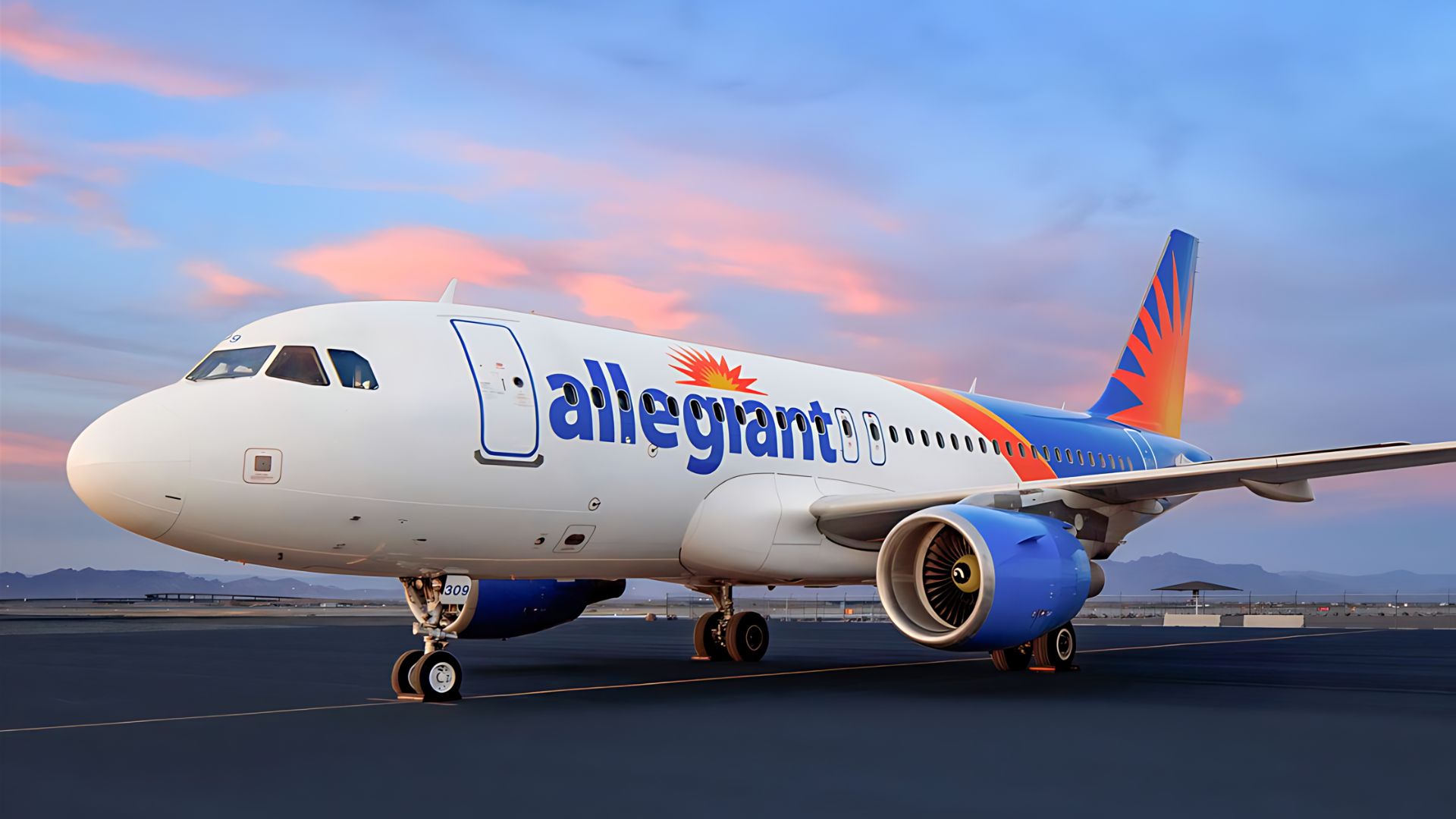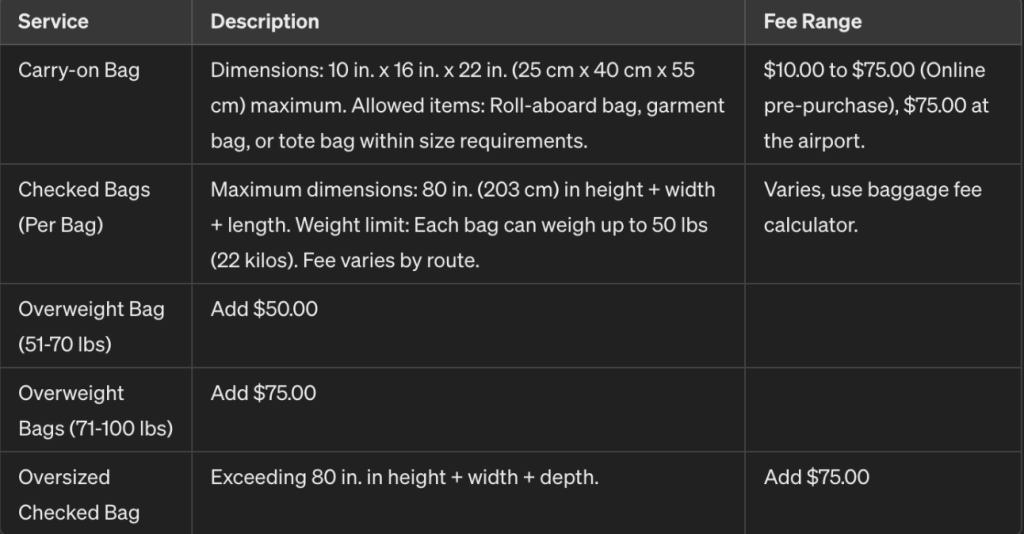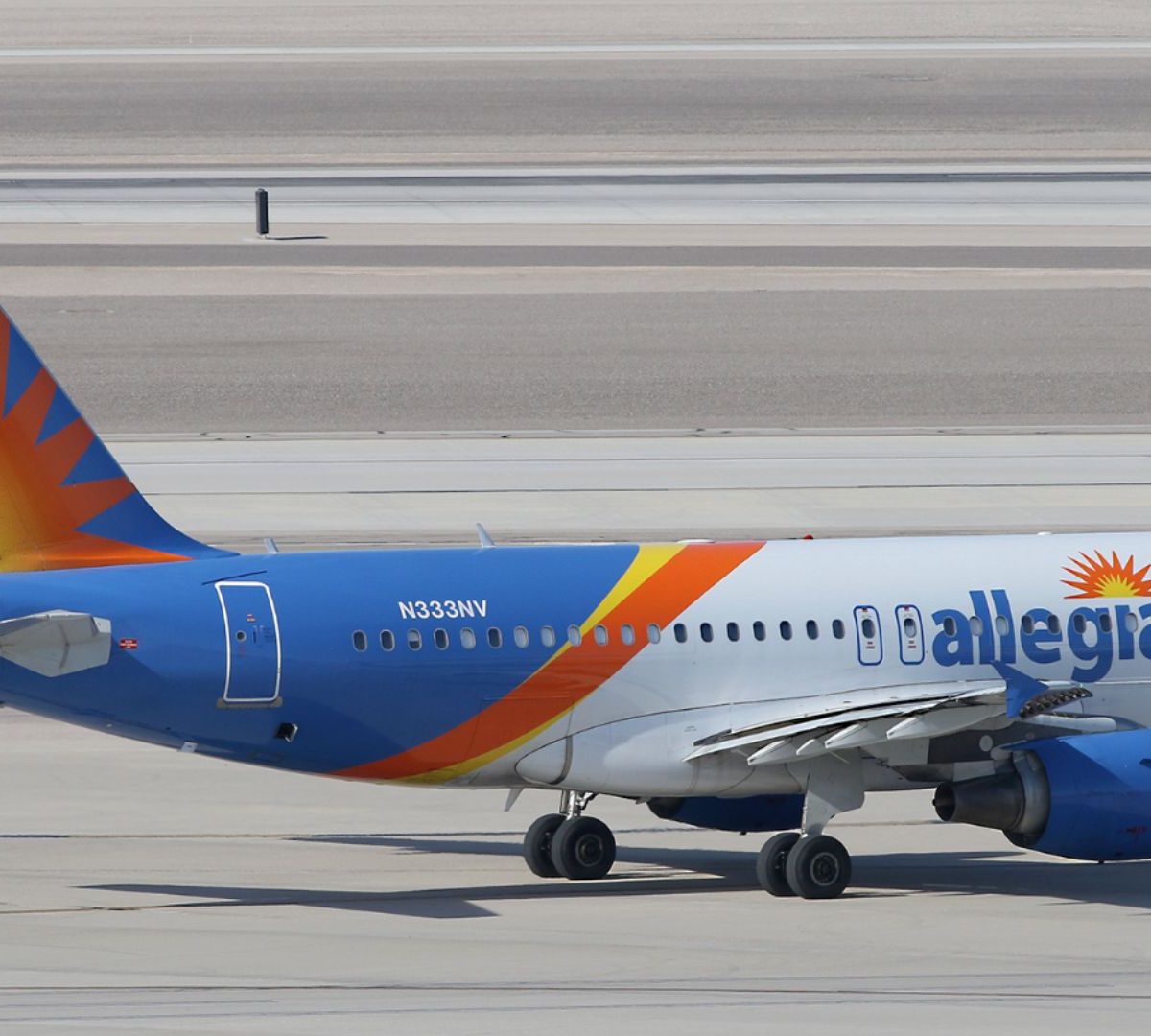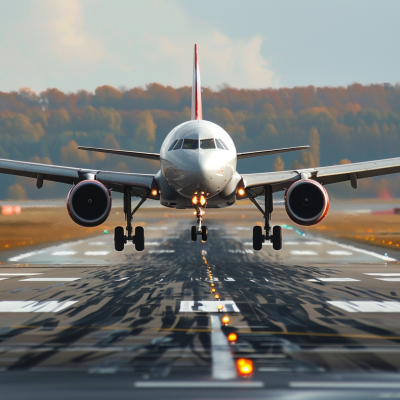Allegiant Airlines, an ultra-low-cost carrier (ULCC), has been investigated in recent years for its safety practices.
In 2018, a 60 Minutes investigation raised concerns about the airline’s safety record, claiming Allegiant was more likely to experience serious mechanical incidents than other major U.S. airlines.
The report cited aborted takeoffs, unscheduled landings, and cabin smoke events. While Allegiant disputed the claims, the investigation left many travelers questioning: Is Allegiant Airlines safe?
This article uses a data-driven approach to analyze Allegiant’s safety ratings and performance metrics over time.
By comparing the airline’s record to other carriers using authoritative sources like the Federal Aviation Administration (FAA) and the Department of Transportation (DOT), we aim to objectively assess Allegiant’s safety standards and determine if the concerns raised are valid or unfounded.
Allegiant’s Ranking Among U.S. Airlines

Allegiant Air is a low-cost American airline known for its budget-friendly fares and focus on leisure travel to smaller regional airports.
When evaluating the safety record of airlines, serious incident rates are an important metric to consider.
These incidents can range from accidents to other safety-related occurrences that may jeopardize passenger safety.
To analyze Allegiant’s ranking among U.S. airlines regarding serious incident rates, we must gather data from reputable sources such as the FAA or the National Transportation Safety Board (NTSB).
We’ll compare Allegiant’s serious incident rates with other major U.S. carriers over several years to provide a comprehensive view.
Here’s a table displaying Allegiant’s ranking among U.S. airlines in terms of serious incident rates each year, along with some context on the airlines included in the analysis:

This chart provides an overview of Allegiant’s ranking among U.S. airlines regarding serious incident rates from 2014 to 2019. As we can see, Allegiant’s ranking fluctuates over the years, and there are instances where it could have been the highest or among the highest in serious incident rates compared to other major U.S. carriers.
Pricing and Fee Comparison
Pricing structure and subsidiary fees highlight the costs associated with services such as baggage, pets, and refreshments.
The overview focuses on transparency and presents a breakdown of fees for carry-on and checked bags, overweight and oversized items, and additional charges for pets and in-flight refreshments.
By offering this detailed comparison, passengers can make informed decisions about their travel expenses and ensure they understand the total cost of their journey with Allegiant Airlines.
The table below shows the required information regarding baggage on the airline.

The table below shows the required information regarding pricing and fee comparison of other services apart from the baggage.

Ticketing options
This section overviews the pricing structure, fare classes, and additional fees for various airlines, including Allegiant Air, Alaska Airlines, American Airlines, JetBlue, and Southwest Airlines.
This information helps passengers understand the options available and make informed decisions when booking flights, considering factors such as ticket flexibility, baggage allowances, and other services offered by each airline.
Allegiant Air
Base Fare: Allegiant Air offers extremely low base fares, but passengers should expect additional fees for add-ons such as bags and seat selection.
Class Options: Allegiant Air does not offer business or first-class options.
Trip Flex Add-on: Passengers can purchase the Trip Flex add-on for $29.00 to $43.00 per person per segment, allowing one free change or cancellation.
Cancellation Policy: Learn how to cancel an Allegiant Air flight and understand the associated policies here.
Aircraft Information: For details about Allegiant Air’s aircraft models, visit Allegiant Air – Airline
Alaska Airlines
Safety Record: According to the AirAdvisor Airline Safety Score, Alaska Airlines is ranked as one of the top 10 safest airlines in the U.S., with a perfect accident record in 2022 and no reported incidents.
Flight Pass Subscription: Alaska Airlines offers a “Flight Pass” subscription service, which provides frequent, flexible flights for a monthly fee of $49. This allows customers to lock in a price for 12 months of travel to select destinations in California, Nevada, Arizona, and Utah.
Loyalty Program: Alaska Airlines has an award-winning loyalty program that allows customers to earn 70,000 bonus miles after qualifying purchases with the Alaska Airlines Visa® card.
Flight Booking and Management: Customers can book flights, check in, pay for bags, view flight status, and manage their trips through the Alaska Airlines website and mobile app. To do so, visit Manage Reservation.
American Airlines
Variety of Pricing Options: American Airlines offers various pricing options, from Basic Economy to Premium Economy and First Class.
Flight Change Fees: There are no fees for flight changes on non-basic economy fares.
Basic Economy Restrictions: Basic Economy tickets have restrictions and charges for bags, seat selection, etc.
JetBlue
Fare Options: JetBlue offers ‘Blue Basic’ fares for economy, as well as ‘Blue Plus’ and ‘Mint’ business class options.
Flight Change Fees: Blue Plus fares have no change or cancellation fees.
Restrictions: Blue Basic fares are more restrictive, similar to Basic Economy on other carriers. Visit this website for more information on Jet Blue’s Fare Options.
Southwest Airlines
No Fees: Southwest Airlines does not charge ticket change or baggage fees.
Fare Types: Southwest offers ‘Wanna Get Away,’ ‘Anytime,’ and ‘Business Select’ fare types.
Cancellation/Change Policies: Southwest has more generous policies regarding cancellations and changes across all fare types.
Final Thoughts
Considering airline safety and prices, seeing things from different angles is important. Allegiant Airlines, just like any other airline, is looked at closely and has chances to improve.
Even though safety worries are present, it’s good to recognize that Allegiant is trying to improve things.
Airlines need to work together, using data and expert advice, to keep getting better.
Instead of just focusing on one airline, everyone should work together to make flying safer and more comfortable for passengers.
By being open, taking responsibility, and aiming for excellence, airlines can make flying better for everyone, making safety and happy passengers the main priorities.
Frequently Asked Questions
How Does Allegiant Airlines Rank for Safety?
Allegiant Airlines’ safety ranking varies, with concerns over incidents. Due to past incidents and operational analysis, it’s not consistently ranked among the safest airlines.
Does Delta Airlines Own Allegiant?
No, Delta Airlines does not own Allegiant. Allegiant is an independent ultra-low-cost carrier (ULCC) operating separately from Delta Airlines.
Is Allegiant Better than Southwest?
When comparing Allegiant and Southwest’s safety records, Southwest generally ranks higher in safety assessments and has a better reputation than Allegiant.






